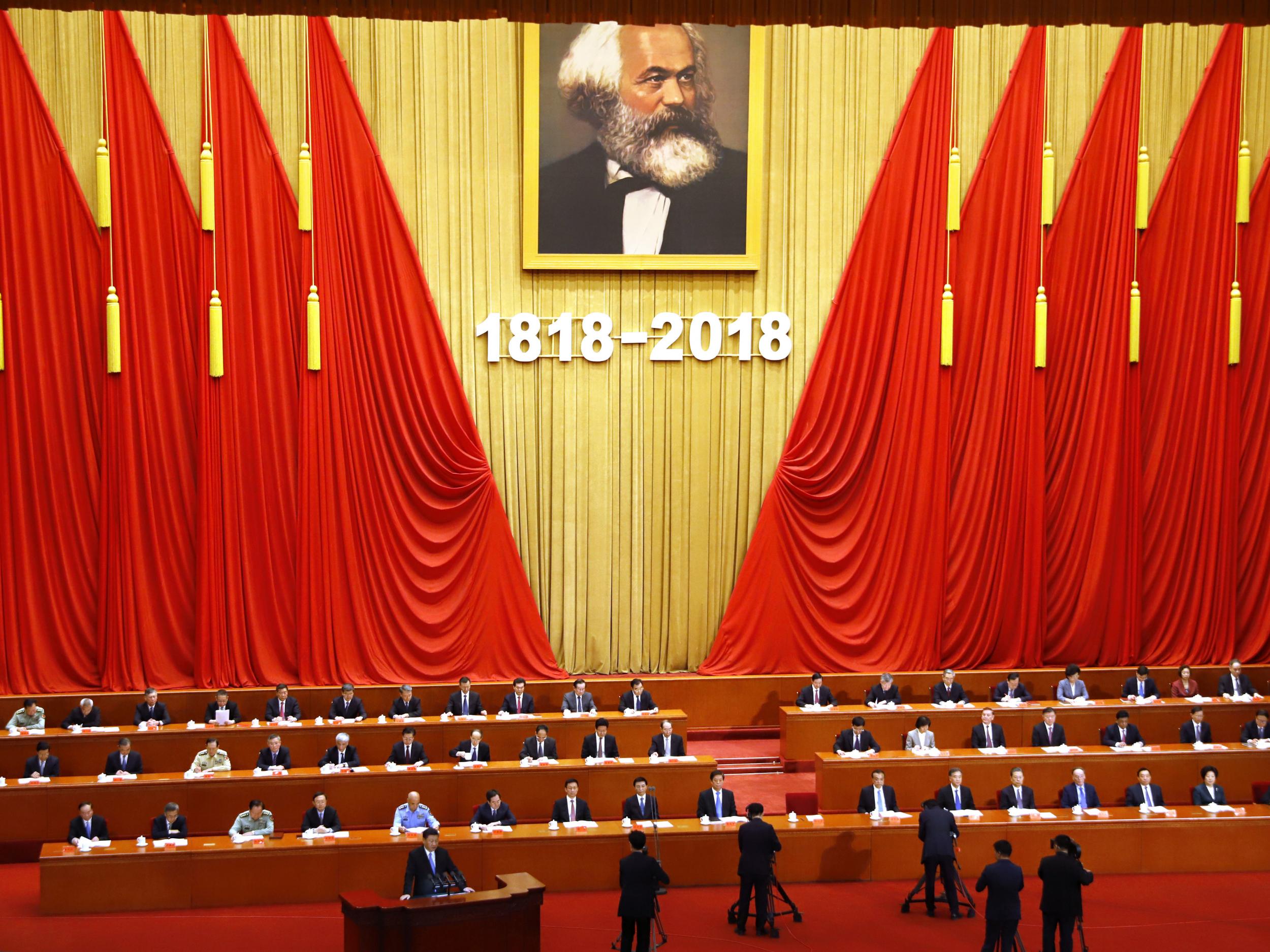'Today he stands for things, which is he not responsible for': EU president Juncker defends Karl Marx’s legacy
Jean-Claude Juncker marks Karl Marx's 200th birthday in the philosopher's hometown
The president of the European Commission has defended Karl Marx’s record as a philosopher, arguing that he is not “responsible” for mistakes and atrocities committed in his name after his death.
In a speech in the German philosopher–economist’s hometown of Trier to mark his 200th birthday, Jean-Claude Juncker said that “Marx isn't responsible for all the atrocity his alleged heirs have to answer for”.
The theorist, whose work has been cited by political currents ranging from libertarian socialists to brutal authoritarian dictatorships, has loomed large over world politics as well as academia for around 150 years. He lived his last years exiled in London, where he authored the Communist Manifesto, his best-known work.
“Karl Marx was a philosopher, who thought into the future had creative aspirations, and today he stands for things, which is he not responsible for and which he didn't cause, because many of the things he wrote down were redrafted into the opposite,” Mr Juncker said in a speech at a church in Trier.
“One has to understand Karl Marx from the context of his time and not have prejudices based on the review, these judgements shouldn't exist. Karl Marx was lucky in life as he was born in Trier. He grew up in the city, actually the shortest period of his vita.”
Drawing on the philosopher’s legacy, Mr Juncker said the European Union’s instability could be addressed by focusing more on social welfare, which he said had been a neglected part of European integration so far.
“It will be a task of our time to create a lively reality out of the social rights we set up for Europe, for the ones who live today and often are sad or blackmailed by life and won't have enough social rights and the ones, who will be born tomorrow,” he said.

“The European Union is not a flawed, but an unstable construction. Unstable also because Europe's social dimension until today remains the poor relation of the European integration. We have to change this.”
A former student of the philosopher Hegel, Marx developed the theory of historical materialism which he argued explained the development of human society and the development of social classes. His work argues that capitalism’s creation of a mass of workers who owned no property will be its downfall. He argued for the establishment of a “dictatorship of the proletariat” through which workers would become the dominant class.
Dozens of states around the world previously cited variants of Marxism as their official ideology, but after the fall of the Soviet Union in the 1990s and the disintegration of its allies only four remain: China, Cuba, Laos, and Vietnam.
Mr Juncker's speech drew criticism from some anti-communist countries. Critics of Marx argue that the deaths and human rights abuses under by communist regimes should be attributed to his philosophy. His defenders say his work still has value and dispute the role of Marxism in wrongdoing.
Join our commenting forum
Join thought-provoking conversations, follow other Independent readers and see their replies
Comments
Bookmark popover
Removed from bookmarks